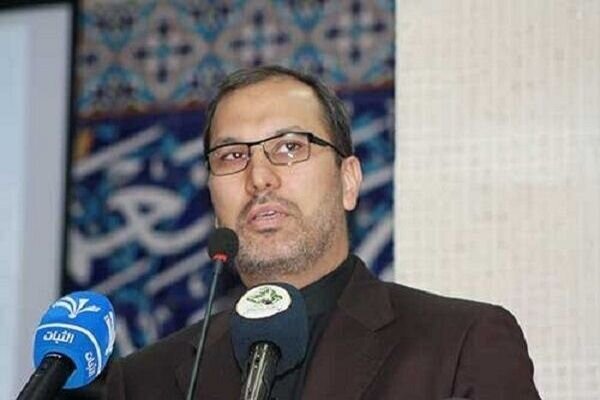Farming climate plan imposes ‘impossible’ burden on other sectors, say scientists
‘Special dispensation’ for agriculture leaves State exposed to legal action for failing to hit 2030 climate target
:quality(70)/cloudfront-eu-central-1.images.arcpublishing.com/irishtimes/RXULTHPCDJDVTNVS7RPQIDSEXY.jpg)
Minister of State for Farm Safety Martin Heydon with Minister for Agriculture Charlie McConalogue, Minister for Climate Eamon Ryan and Minister of State for Land Use Pippa Hackett at the announcement of sectoral emissions ceilings.
Simon Carswell
Cormac McQuinn
Sat Jul 30 2022 -
The emissions reduction set by Government for farming places an impossible burden on other sectors to reach the overall climate change target by 2030 and exposes the State to legal action, scientists have warned.
Climate scientists have said the Government decision’s this week to demand a 25 per cent reduction in greenhouse gas emissions from the agriculture sector will result in the State falling short of the Government’s commitment, set in law, to cut emissions by 51 per cent by 2030.
The Climate Change Advisory Council, the independent body set up to advise Government, has said the sector-by-sector emission targets announced by the Government on Thursday would lead to an overall cut of just 43 per cent over the next eight years.
Advisory council chairwoman Marie Donnelly said in the long term the ceiling for one sector will have to be substantially increased “or all sectors will ultimately have to be revised upwards. At this point, it’s no longer about talking; it is now about … implementing actions and implementing them at speed,” she said.
Dr Cara Augustenborg, an environmental policy professor at UCD and a member of the council, said the shortfall left by the sector-by-sector ceilings should create a “big concern” for the Government.
“It means at some stage the targets will have to be increased to meet that 51 per cent and it puts the Government at risk because it has been set forth in legislation, so it is obviously justiciable, meaning that any group can take the Government to court,” she said.
Peter Thorne, a climate science professor at Maynooth University, said the 25 per cent target for the farming sector was responsible for a large proportion of the shortfall between what the sector-by-sector ceilings will actually achieve and the overall target of 51 per cent.
‘Cold hard maths’
“Agriculture is responsible for about 37 per cent of emissions, so if we give only a 25 per cent reduction, the ask on all other sectors becomes impossible. The cold hard maths is going to have to come into this,” he said.
“Physics doesn’t care for a special pleading or special dispensation; physics fundamentally cares about emissions and it is the emissions that matter.”
Climate politics is here to stay
Technological University Dublin professor Pat Goodman, who researches air pollution and human health, said the plan was “very much a political document trying to keep all sides happy. The reality is you can set all the targets you like but how are we going to achieve them? We need to see a bit more detail about how we get there.”
Dr Patrick Bresnihan, a geography lecturer at Maynooth University, said the Government’s admission that the changes demanded from farmers would be voluntary showed that it was “not grasping the contradictions” between the State’s agricultural models and its climate ambitions.
This was also the case for the Government’s policy on foreign direct investment into data centres and the approach taken to encourage people to buy electric vehicles.
“I am really not convinced that any of the political parties, including the Greens, are willing to tackle those contradictions,” he said.
Data centres
The academic, a researcher on the environmental cost of energy-intensive data centres, said the emissions-cutting plan also depended on unproven advances in wind and solar technology.
“This is being kicked further down the line and it is very much reliant on technologies that haven’t been proven at scale,” he said.
Green Party politicians have argued that the agriculture sector’s contribution to carbon emissions cuts will be greater than the 25 per cent agreed by Government due to plans for more energy generation on farms.
However, there is a push from some rural Fianna Fáil TDs that farmers’ efforts on renewable energy should be included as part of their cuts rather than those allotted to the energy sector.
The issue has the potential to cause continued internal tension within the Coalition over carbon emissions targets for agriculture. Documents obtained by The Irish Times reveal the difficult nature of the Coalition talks, with the prospect of “herd retirement schemes” raised at one stage between Ministers.
Simon Carswell
Simon Carswell is The Irish Times’s Public Affairs Editor and former Washington correspondent






 This file photo taken on Nov 22, 1996 shows Philippine President Fidel Ramos addressing the opening of the Asia-Pacific Economic Cooperation (Apec) Ministers' Meeting in Manila. Ramos, who oversaw a rare period of steady growth and peace that won him the reputation as one of the country's most effective leaders ever, has died aged 94, officials said on Sunday. (AFP)
This file photo taken on Nov 22, 1996 shows Philippine President Fidel Ramos addressing the opening of the Asia-Pacific Economic Cooperation (Apec) Ministers' Meeting in Manila. Ramos, who oversaw a rare period of steady growth and peace that won him the reputation as one of the country's most effective leaders ever, has died aged 94, officials said on Sunday. (AFP)





